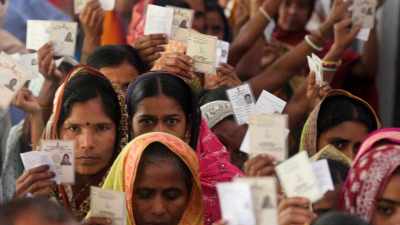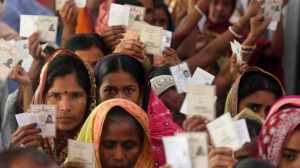Click here to join Express Pune WhatsApp channel and get a curated list of our stories
Pune’s Gokhale House, home to Mahatma Gandhi’s guru and the Servants of India Society
Freedom fighter Gopal Krishna Gokhale’s house in Pune is now a museum that stands testimony to the social reformer’s life and his influence on the Independence movement.
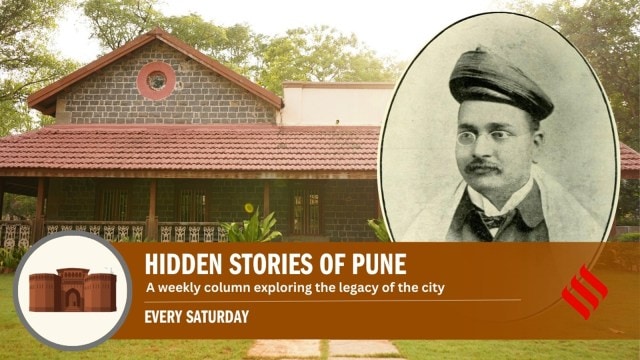 This is where Gokhale lived between 1907 and 1915, and “breathed his last”, says Damodar Sahoo, president of the Servants of India Society.
This is where Gokhale lived between 1907 and 1915, and “breathed his last”, says Damodar Sahoo, president of the Servants of India Society. In a quaint corner of Pune’s Gokhale Institute of Politics and Economics, a row of stone tiles passes through a neatly trimmed lawn, leading to Gokhale House, the residence of freedom fighter and social reformer Gopal Krishna Gokhale. This is where Gokhale lived between 1907 and 1915, and “breathed his last”, says Damodar Sahoo, president of the Servants of India Society.
Today, the house has three large halls and a small rectangular kitchen, all painted a spotless off-white. Photo frames lined up on the walls provide a glimpse into Gokhale’s life – the sheltered spot near Kapsi where he studied, the river where he swam, and the text of the speech he delivered in Lahore where he expressed his thoughts on Mahatma Gandhi.
The house still retains the same furniture Gokhale used. It was all restored and renovated when the residence was converted into a museum around 2017. The ideation began around 2015, the year that marked the 150th birth anniversary of Gokhale, and the Pune Municipal Corporation (PMC) heritage cell provided a grant of Rs 25 lakh for the same.
“The restoration started in 2016. The roof was extremely damaged, there were some leakages…But it took around a year to restore as we started in the summer of 2016 and had to take a break in the rainy season,” said Shyam Dhavale, head of the PMC heritage cell at the time of restoration. Plastering and lime mortar works were also carried out.
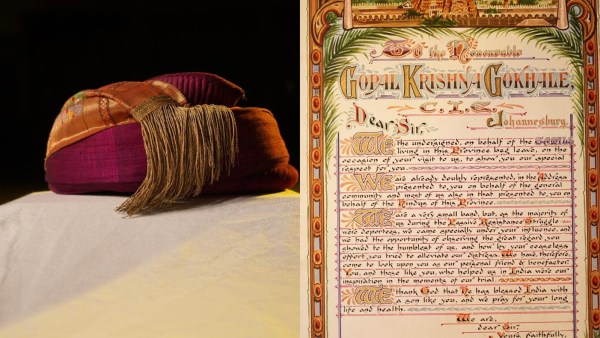 The institute also possesses some important memorabilia like Gokhale’s distinctive pagdi (turban) and the prestigious awards he won.
The institute also possesses some important memorabilia like Gokhale’s distinctive pagdi (turban) and the prestigious awards he won.
According to Milind Deshmukh, secretary of the Servants of India Society, a society Gokhale founded, the restoration also involved polishing the wood and the electrification and beautification of the lawn.
The institute also possesses some important memorabilia like Gokhale’s distinctive pagdi (turban) and the prestigious awards he won. It also has a letter addressed to Gokhale by C K Thambi Naidu on behalf of Tamil Benefit Society, which says, “You and those like you who helped us in India were our inspiration in moments of our trial”.
When Gandhi met Gokhale
Mahatma Gandhi regarded Gopal Krishna Gokhale as his political mentor and was deeply influenced by his ideas. He also wrote a book titled Dharmatma Gokhale dedicated to his mentor.
“With him, this was my first meeting, and yet it seemed as though we were renewing an old friendship”, expressed Gandhi about their meeting in Poona on Fergusson College grounds on October 12, 1896.
About that day, he wrote in his autobiography The Story of My Experiments with Truth, “Gokhale closely examined me, as a schoolmaster would examine a candidate seeking admission to a school. He told me whom to approach and how to approach them. He asked to have a look at my speech. He assured me that he was always at my disposal and sent me away exultantly happy. In the sphere of politics, the place that Gokhale occupied in my heart during his lifetime and occupies even now was and is absolutely unique”.
Gandhi has also documented fond memories of another visit to Pune when Gokhale had summoned all the members of the Servants of India Society to meet him. Gokhale was keen on Gandhi joining the society. “But the members felt that, as there was a great difference between my ideas and theirs, it might not be proper for me to join the Society,” Gandhi wrote.
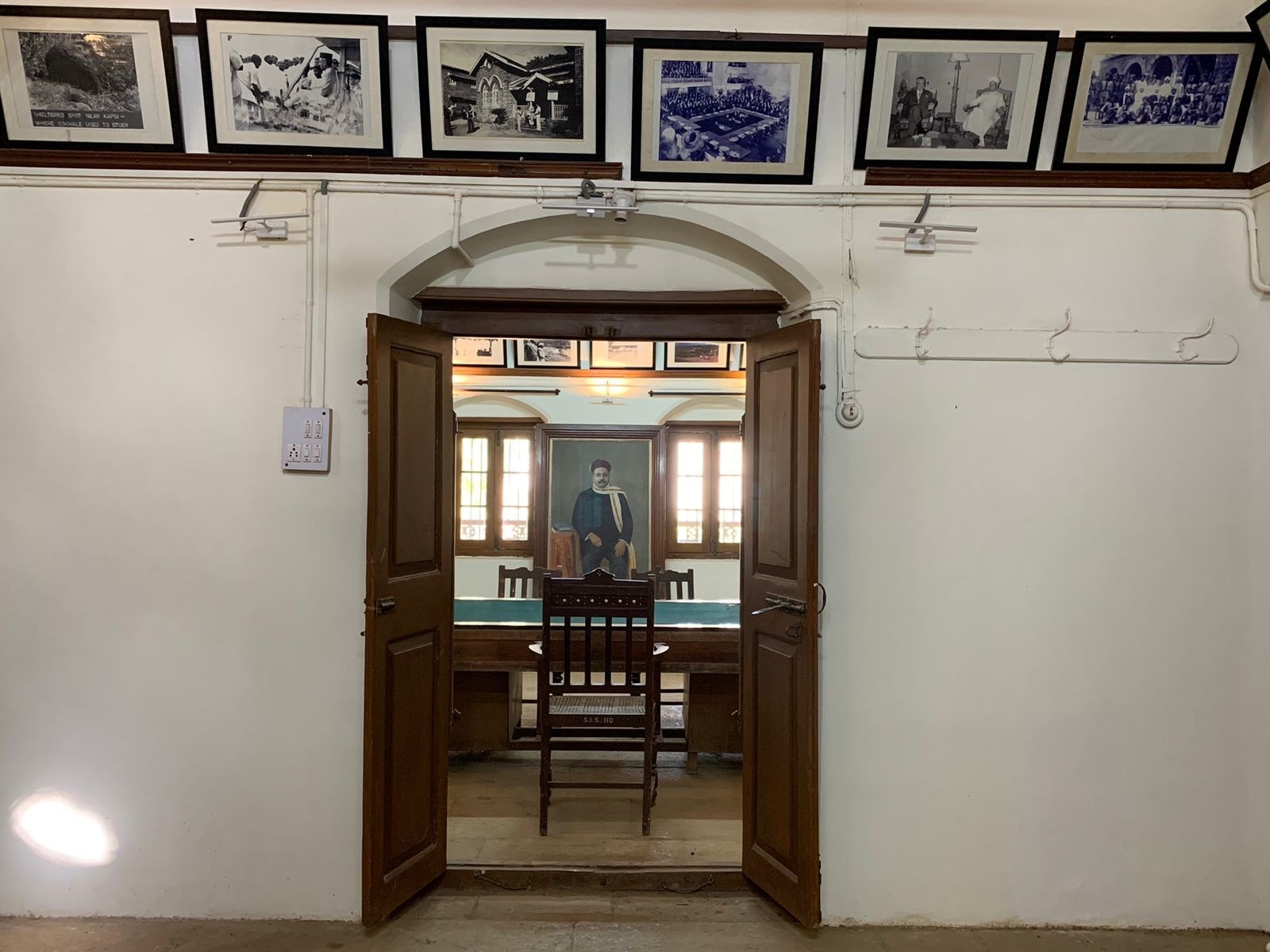 The house still retains the same furniture Gokhale used. (Express photo by Ravina Warkad)
The house still retains the same furniture Gokhale used. (Express photo by Ravina Warkad)
Gokhale had reportedly said to Gandhi then, “I am hoping that they will accept you, but if they don’t, you will not for a moment think that they are lacking in respect or love for you. They are hesitating to take any risk lest their high regard for you should be jeopardised. But whether you are formally admitted as a member or not, I am going to look upon you as one.”
During the time, Gandhi had expressed his wish of having an Ashram to settle down somewhere in Gujarat and Gokhale suggested that he would bear the expenses for it. An account was opened in the Society’s books to bear not only the expenses of the Ashram but also Gandhi’s public expenses. Gandhi recollects, “My heart overflowed with joy. It was a pleasure to feel free from the responsibility of raising funds and to realise that I should not be obliged to set about the work all on my own, but that I should be able to count on a sure guide whenever I was in difficulty. This took a great load off my mind.”
After this meeting, Gandhi prepared to go to Shantiniketan, but on the eve of his departure, Gokhale arranged a party of selected friends for him. Hosted just a few paces from Gokhale’s room, he had arranged food of Gandhi’s liking, like fruits and nuts. “Yet he was hardly in a condition to walk across and attend it. But his affection for me got the better of him and he insisted on coming. He came but fainted and had to be carried away. Such fainting was not a new thing with him and so when he came to, he sent word that we must go on with the party,” wrote Gandhi.
Servants of India Society
The Servants of India Society (SIS) was formed by Gokhale along with G K Devadhar, A V Patwardhan, and N A Dravid on June 12, 1905. According to an account published by Dattatreya Ganesh Yervadekar in 1926, the foundation stone of the society was laid by Shivram Hari alias Abasaheb Sathe.
The society’s objectives were to promote education, encourage social service and foster civic engagement. Its cenotaph is installed on Fergusson Hill, where the vows of Servants of India Society were taken, as a memorial for Gokhale.
 An account was opened in the Society’s books to bear not only the expenses of the Ashram but also Gandhi’s public expenses.(Photo: Gokhale archives)
An account was opened in the Society’s books to bear not only the expenses of the Ashram but also Gandhi’s public expenses.(Photo: Gokhale archives)
Yervadekar documents in a book on Gokhale, “At the time of the foundation, in the hills between Fergusson College and the Society building, bearing witness to ten directions, Gopal Krishna Devadhar promised Gopalrao to dedicate his life to mother India.”
SIS played a critical role in the Independence movement. Many of its members went on to become prominent leaders in the movement, including Jawaharlal Nehru, Sardar Vallabhbhai Patel, and M S Golwalkar.
Click here to join Express Pune WhatsApp channel and get a curated list of our stories


